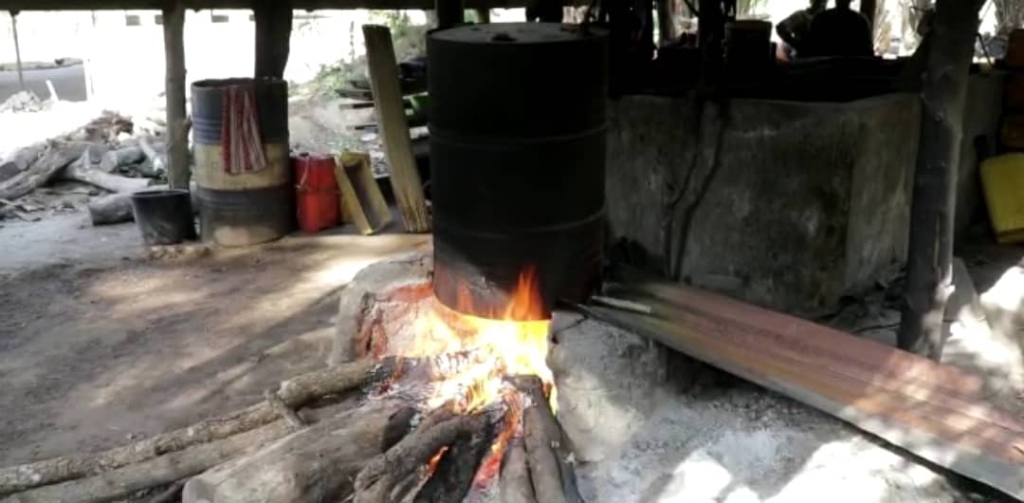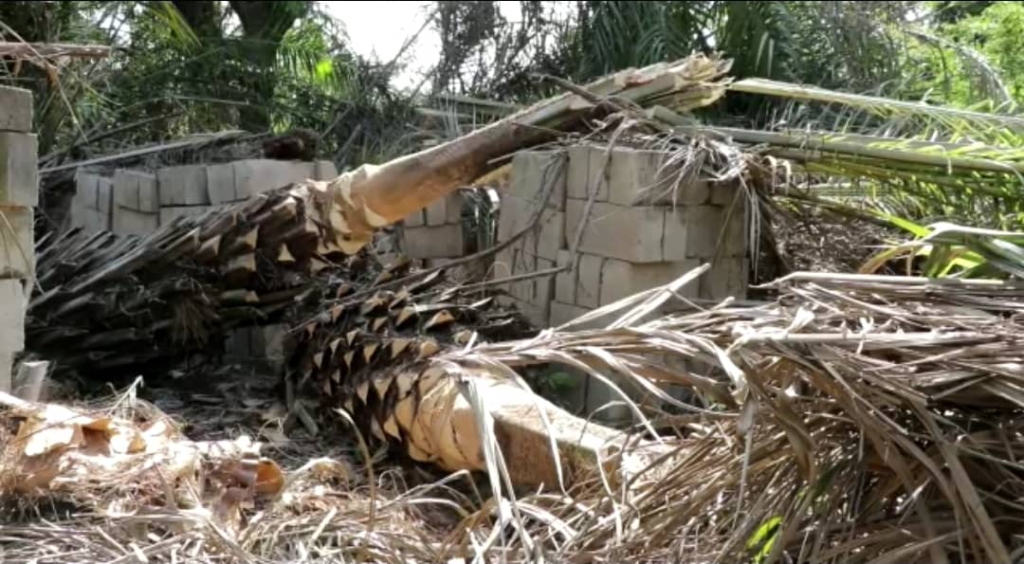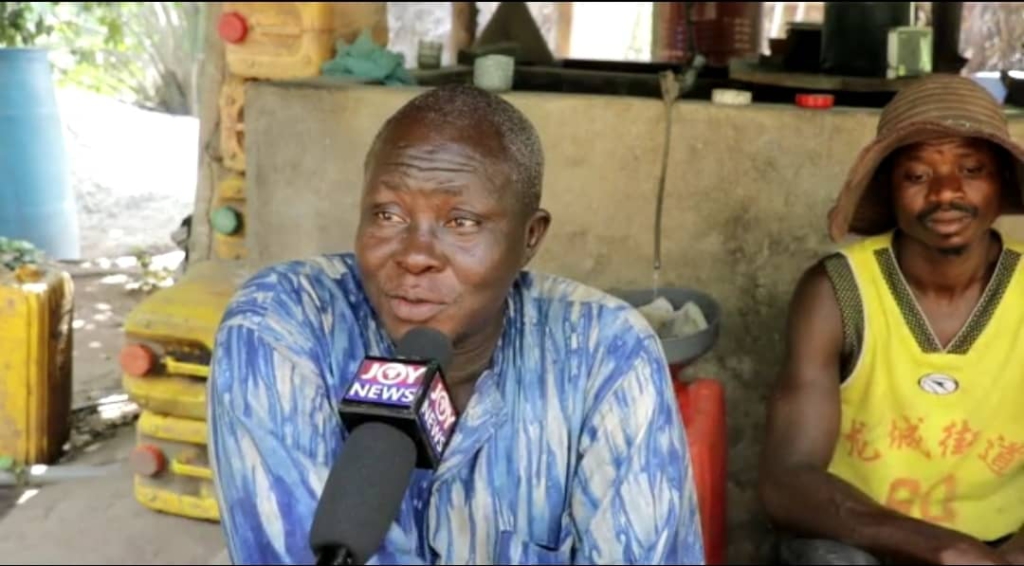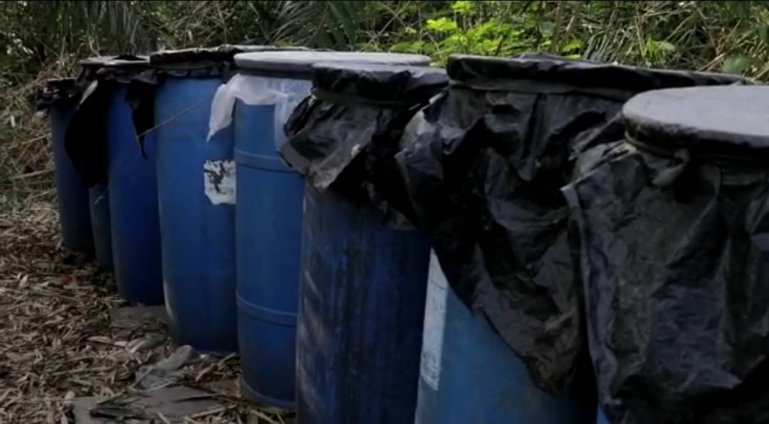Global warming caused by carbon emissions might appear theoretical and perhaps far from many.
However, unknown to a majority of persons in the coastal belt of Ghana specifically, in the Volta Region; a very usual and extremely popular local gin enjoyed by a majority of residents as the local favorite – akpetetsi [Dekele prepared from palm wine and Fofonuha prepared from sugar cane by mostly Anlos] – is contributing to the veritable phenomenon of climate change threatening the very existence on earth.
Carbon sinks in these palm trees destroyed for this delicacy is a major contributor to climate change and what is more alarming is that as the mere act of destroying these trees continues to contribute to the global warming equation; the ability of newly planted palm trees to survive the next generation is reduced by 70% as scientists tip palm trees to lose their climate suitability as the climate variations get direr.
The clear conflict here is between economic gains or livelihoods of persons along the palm wine and akpetetsi business and the threats to the environment as these carbon sinks get destroyed. The threats are further exacerbated by the method of open burning used in tapping more sweetened sap from the harvested palm trees.

Palm wine is either enjoyed sweet and fresh or distilled into the local strong gin, akpetetsi. While the palm wine tappers fell whole palm trees to make just six to ten gallons of palm wine sold at an average of GHC150 each; environmentalists and climate change researchers paint a very gloomy picture of the impact on the environment and the future sustainability of both the business and the survival of the palm tree in harsh climatic conditions.
Is the climate change argument created by the felling of the trees and the open burning used to tap the sweetened sap of the tree; compelling enough to convince these persons to either halt or adopt better means of getting the optimal yield per palm tree?

Well, speaking in an interview with some palm wine tappers and akpeteshi producers, they disagree on the issues raised about the carbon emission, and the assertion that carbon sinks in these palm trees destroyed for this delicacy is a major contributor to climate change.
These people believe strongly that brewing the delicacy, as they called it, is very natural and has no negative effects whatever on the environment.
They noted that the local gin called akpeteshi is the most natural and the best gin ever one can find anywhere and even foreigners love to have a taste of it anytime they find themselves in Ghana, especially in the southern part of the country where it is mostly produced.
A man popularly called, Reddoh, in Ho who was at the time of the interview, producing the local gin, Akpeteshi, noted that "Africa, especially Ghana cannot in any way contribute negatively to climate change or pollute the environment as compared to the western world who does a lot of production that affect the environment negatively.”

"How can these white people say Akpeteshi that has been there since our forefathers and something they themselves enjoy whenever they are in the country, affects the environment negatively? How can this be possible and you journalists are busily disturbing us on the issue “he fumed.
The drink which is in very high demand creates jobs for hundreds of thousands across the value chain. People who have the trees sell them for as low as GHC150 to be harvested for palm wine. Palm wine tappers make their livelihoods from tapping and selling. Other persons some of whom are farmers suffering climate migration from the northern part of Ghana buy and sell the drink along roadsides; in restaurants and bars.
The tree and its harvesting have become a source of income for several rural dwellers and poor households who cannot afford any other jobs. So there is an issue of understanding the real-life situations confronting the persons benefitting from this economic activity albeit unfriendly to the climate.
The effect is so harsh on the coastal lines where the Volta Region sits. These ecological trees have rare capacities of withstanding strong winds caused by extreme weather patterns occasioned by climate change.
They serve as wind blocks for these coastal dwellers, especially for their known capacity to bend to any direction and spring right back up. Clearing these species just for drinks takes away this natural climate adaptation safeguard.
Apart from this, the Volta Region has been the subject of high tidal waves and strong winds from the sea. Thousands have been displaced from Keta and its adjoining communities along the shores of the sea and the river Volta. Some communities are no more because the sea has virtually taken over those settlements, due to rising sea levels.
Deforestation: Unfortunately, most of these tree species are not replanted. There is no regulation on this practice even though the Environmental Protection Agency demands that people seek permission before any activity that alters the environment including tree cutting is undertaken.
Sustainability: According to a 2015 study dabbed, “The Evolution and Classification of Palms,” For all groups of palms, researchers are projecting on average, a decline in climate suitability in 70% of their current predicted ranges by 2080.
The research conducted by Dransfield, J. et al. Genera Palmarum indicates that, “Palms are keystone species in tropical ecosystems and provide essential ecosystem services to rural people worldwide. However, many palm species are threatened by habitat loss and over-exploitation. Furthermore, palms are sensitive to climate and thus vulnerable to future climate changes.
This suggests that as the felling of these trees contributes to the carbon emitted without the carbon sinks to contain them; the sustainability of these trees are also threatened by climate change. It could thus get to a point where replanted palm species, might not stand the effects of climate change. There are other studies that show that the existence of these trees protects the rainforests and provides food for several other insects and animals including squirrels, elephants and chimpanzees.
Ghana recently received 4.8 million dollars as carbon credits for reducing its emissions from deforestation and forest degradation.
Climate change watchers however warn that unchecked felling of palm for palm wine and akpetetsi could offset the gains if the right policies are not implemented.
How well are the country’s Environmental Protection Agency and Forestry Commission looking at this industry? Where are the synergies between regulation and science to provide better ways of going about the process of tapping and the enforcement of replanting after each harvest?
More of this in part two of a 3 part story on drinking into a warm globe {carbon emission, climate change].
Latest Stories
-
Pursue projects under National Dev’t Plan – Prof. Quartey advises gov’t at inaugural lecture
13 minutes -
Today’s Front pages: Friday, March 14, 2025
33 minutes -
Access Bank champions digital innovation at Africa Bank 4.0 Summit – West Africa
47 minutes -
GRA leadership begins discussions to meet GH₵220bn revenue target
57 minutes -
Peter Toobu advocates for fixed tenure for IGP and other security chiefs
1 hour -
Prudential Bank donates GH¢83,000 to KsTU to facilitate teaching and learning
1 hour -
It’s never too late to start pursuing excellence – Omane Boamah encourages youth at IYES
2 hours -
The destiny of Ghana and Africa rests in our hands – Defence Minister to the youth
2 hours -
John Jinapor inaugurates committee to probe Akosombo Dam Spillage
2 hours -
‘It distorts consumption, it distorts production’ – Mark Badu Aboagye on E-Levy’s negative impact
2 hours -
Nigeria’s lower house of parliament passes tax reform bills, with some tweaks
3 hours -
‘We don’t know when government is taking it out’ – Mark Badu Aboagye questions VAT reform timelines
3 hours -
Namibia’s cholera-free decade ends with one confirmed case
3 hours -
Telecel Ghana employee Volunteers deliver clean water to Akohia
3 hours -
EU pledges €4.7bn to South Africa as Trump brings them closer
5 hours

